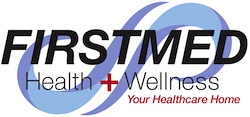For all of us in healthcare, there comes a moment in time when we transition from provider to patient or family advocate. This past week was my turn. One of my parents (like many in my generation, I’m blessed with more than two) was hospitalized with a myriad of difficulties that boil down to, elderly and likely unable to return home.
For anyone who has faced the challenge of supporting a loved one through the consideration of this transition, the roller coaster of emotions, perspectives and relationship roles is completely overwhelming. But rather than focus on the challenges implicit in this situation, I want to focus here on the value of the optics.
I have had the pleasure and misfortune to work with facilities who are obsessed with “patient experience” and those who seem to think it’s a bridge too far, from the hospital whose staff openly described themselves as “Studor-ized,” to the chaos and apparent disdain of the safety net. Over the past weeks of being with my parent hour after hour in a hospital room, the learning from this unique perspective became readily apparent. Consider the following:
- When you need a bed pan or urinal, how long feels like a “long-time” before anyone comes to bring you one?
- When you have profound tremors and weakness in your extremities, how big (and sensitive) should the buttons on your call system and bed control panel be?
- If you drop your call button onto the floor, how do you get it back?
- Is there a “5-Second Rule” for a nasal cannula dropped on the floor?
- When your IV Pump begins to alarm loudly, how long before someone comes to silence it?
- When you’re wearing a hospital gown, what parts of you are “in the breeze” when you’re lifted between chair and bed?
- Should anything “dirty” be placed on your over-bed table? Your lunch will go there, too.
- And . . . Have you ever tried to eat from an over-bed table? It’s not easy!
- Is “honey, sweetie, sweetheart, darling, my-love, etc.” condescending or friendly?
- When you tell someone, “Okay, I’ll be right back,” how long do they think you’ll be gone before you’re “right back”?
In the age of constant monitoring and metrics, the patient’s actual “experience” can get lost in the chatter about patient experience scores. Those who have made millions selling all of us the same common sense the average waiter or waitress depends upon to pay their bills have taught us that it really is the “little things” that make all the difference in the world. My loved one is in a small rural hospital and, I have to say, the staff have all been thoughtful, kind and attentive. But is that enough, for your loved one? Is attending to patient experience a matter of teaching to the test or is it really about a shift in focus? I admit, I’ve often found myself completely frustrated with the variability and, in some cases, single-minded obsession with patient experience scores. But beyond the scores, there are people who count on us at their most vulnerable moments.
I wish I’d never had to be with my loved one in the hospital for the past weeks and I wish that situation was resolved. It’s not. But, the learning this unwelcome shift in perspective has provided has been invaluable. I don’t wish it on you, but I can assure you, that when you can’t just walk out of the room and get back to work . . . you will learn something truly valuable.
Miles D. Kramer, LCSW, CCHP
Vice President – Development
Horizon Health
